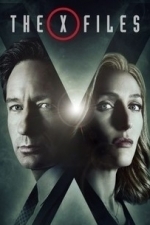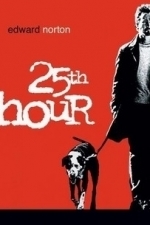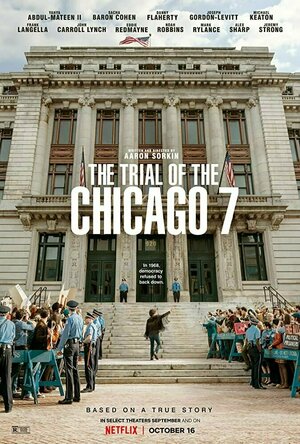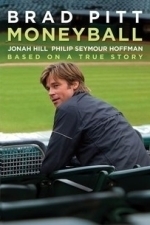Search
Kit Harrington recommended 25th Hour (2003) in Movies (curated)
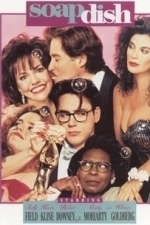
Soapdish (1991)
Movie Watch
Celeste Talbert (Sally Field) is the star of the long-running soap opera "The Sun Also Sets." With...
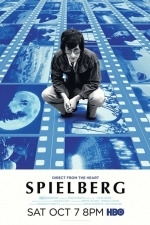
Spielberg
TV Show Watch
Filmmaker Steven Spielberg and his colleagues discuss the classic movies that made him famous,...
documentary biography
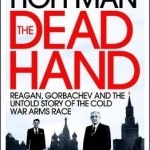
The Dead Hand: Reagan, Gorbachev and the Untold Story of the Cold War Arms Race
Book
This book is the winner of the Pulitzer Prize for general non-fiction 2010. The first full account...

What Just Happened?: Bitter Hollywood Tales from the Front Line
Book
Forget everything you've heard about Hollywood. What Just Happened: Bitter Hollywood Tales from the...
Bob Mann (459 KP) rated The Trial of the Chicago 7 (2020) in Movies
Oct 24, 2020
The epic ensemble cast (1 more)
The direction from Aaron Sorkin
“Trial” is a less wordy triumph for Sorkin
So, "The Trial of the Chicago 7" is one which I was unfortunately unable to catch on its short "Oscar-nom" cinema release, but is now on Netflix. And boy, for older viewers who prefer historical drama over wham-bam action, this is definitely worth the watch.
I know a decent bit of 20th century history, but this is a story I knew nothing about. At the 1968 Democratic Convention in Chicago, anti-Vietnam protests resulted in a violent and brutal confrontation with the police. Eight of the ring-leaders were rounded up and charged with inciting the violence. What happens in the court with the eight convicted men, in front of an old and partisan judge (the wonderful Frank Langella), is simply amazing.
There's a nice wiki article on the history you can look up. But its worth watching the movie blind, since it's a great rollercoaster ride.
If you read my blog regularly, you'll know that one of my favourite of the awards in award season is the "Ensemble Cast" award from the Screen Actor's Guild (SAG). I think a good measure of which movies might be good candidates for this award is when you find it difficult to single out particular actors for an individual award when they all work so well together. For this is a cast to die for:
- Sacha Baron Cohen, as Abbie Hoffman: an intelligent 'straight' role, poles apart from Borat and Bruno, that he delivers on 100%;
- Jeremy Strong as Hoffman's buddy Jerry Rubin, doing an enormously entertaining turn;
- Eddie Redmayne as the apparently 'sensible one' Tom Hayden. A bit similar to his role in "Les Miserables", but diving off in a different direction at a key point;
- John Carroll Lynch as the genuine 'boy scout' David Dellinger, so good in "The Founder" and here as the only family man under the judgmental stare of his wife and son;
- Yahya Abdul-Mateen II as Black Panther member Bobby Seale - the "minus 1" from the title - in an astonishingly powerful performance;
- Joseph Gordon-Levitt as the prosecutor Richard Schultz - always quietly dependable;
- And the fantastic Mark Rylance as the defense attorney William Kunstler. I appreciate I am having a tendency to gush in this review, but Rylance expresses such a range of frustration and disgust here that his performance is nothing short of electrifying.
There's also a cracking cameo from Michael Keaton playing the former US Attorney General, Ramsey Clark.
I would think that any of these performances might be Oscar-worthy (somewhere in the Actor/Supporting Actor categories) but my personal choices would be Rylance for Best Actor and Baron Cohen and Langella for Best Supporting Actor nods.
One of my issues with the scripts of Aaron Sorkin is that they tend to be overly dense and wordy. In epic TV like "The West Wing" he could spread the dialogue over a whole series, but in a feature film it can become very dense and verbose. I found that in both of his last two films - "Molly's Game" and "Steve Jobs".
Here, in "The Trial of the Chicago 7", even though there's a lot of speechifying, to me it never felt over the top. Although an epic courtroom drama (akin to his debut script "A Few Good Men") the characters are given time to breath between the lines. And many of those lines are real zingers, particularly out of the mouth of stand-up anarchist Abbie Hoffman (Sacha Baron Cohen).
Aside from the script being a zinger, the direction here from Aaron Sorkin is also top-notch. If you thought a courtroom drama was going to be static and boring, think again. The camera never rests, and inserted flashbacks (excellent film editing from Alan Baumgarten) maintain the momentum of the story.
Overall, this is a movie tour-de-force from Sorkin, and a fantastic watch. Could this be a writing/directing double Oscar nom for Sorkin?
(For the full graphical review, check out the bob the movie man review here - https://rb.gy/y6bxtf . Thanks.)
I know a decent bit of 20th century history, but this is a story I knew nothing about. At the 1968 Democratic Convention in Chicago, anti-Vietnam protests resulted in a violent and brutal confrontation with the police. Eight of the ring-leaders were rounded up and charged with inciting the violence. What happens in the court with the eight convicted men, in front of an old and partisan judge (the wonderful Frank Langella), is simply amazing.
There's a nice wiki article on the history you can look up. But its worth watching the movie blind, since it's a great rollercoaster ride.
If you read my blog regularly, you'll know that one of my favourite of the awards in award season is the "Ensemble Cast" award from the Screen Actor's Guild (SAG). I think a good measure of which movies might be good candidates for this award is when you find it difficult to single out particular actors for an individual award when they all work so well together. For this is a cast to die for:
- Sacha Baron Cohen, as Abbie Hoffman: an intelligent 'straight' role, poles apart from Borat and Bruno, that he delivers on 100%;
- Jeremy Strong as Hoffman's buddy Jerry Rubin, doing an enormously entertaining turn;
- Eddie Redmayne as the apparently 'sensible one' Tom Hayden. A bit similar to his role in "Les Miserables", but diving off in a different direction at a key point;
- John Carroll Lynch as the genuine 'boy scout' David Dellinger, so good in "The Founder" and here as the only family man under the judgmental stare of his wife and son;
- Yahya Abdul-Mateen II as Black Panther member Bobby Seale - the "minus 1" from the title - in an astonishingly powerful performance;
- Joseph Gordon-Levitt as the prosecutor Richard Schultz - always quietly dependable;
- And the fantastic Mark Rylance as the defense attorney William Kunstler. I appreciate I am having a tendency to gush in this review, but Rylance expresses such a range of frustration and disgust here that his performance is nothing short of electrifying.
There's also a cracking cameo from Michael Keaton playing the former US Attorney General, Ramsey Clark.
I would think that any of these performances might be Oscar-worthy (somewhere in the Actor/Supporting Actor categories) but my personal choices would be Rylance for Best Actor and Baron Cohen and Langella for Best Supporting Actor nods.
One of my issues with the scripts of Aaron Sorkin is that they tend to be overly dense and wordy. In epic TV like "The West Wing" he could spread the dialogue over a whole series, but in a feature film it can become very dense and verbose. I found that in both of his last two films - "Molly's Game" and "Steve Jobs".
Here, in "The Trial of the Chicago 7", even though there's a lot of speechifying, to me it never felt over the top. Although an epic courtroom drama (akin to his debut script "A Few Good Men") the characters are given time to breath between the lines. And many of those lines are real zingers, particularly out of the mouth of stand-up anarchist Abbie Hoffman (Sacha Baron Cohen).
Aside from the script being a zinger, the direction here from Aaron Sorkin is also top-notch. If you thought a courtroom drama was going to be static and boring, think again. The camera never rests, and inserted flashbacks (excellent film editing from Alan Baumgarten) maintain the momentum of the story.
Overall, this is a movie tour-de-force from Sorkin, and a fantastic watch. Could this be a writing/directing double Oscar nom for Sorkin?
(For the full graphical review, check out the bob the movie man review here - https://rb.gy/y6bxtf . Thanks.)
Gareth von Kallenbach (980 KP) rated Moneyball (2011) in Movies
Aug 7, 2019
Baseball economics has long a source of serious debate amongst fans, players, and teams. The contentious issues of how to divide the revenue in an equitable manner led to the cancellation of the playoffs and World Series in 1994 and is still largely unresolved today. While smaller market teams are given funds from a luxury tax imposed on larger payroll teams, it still fails to provide an even competitive playing field when large market teams, such as the New York Yankees, can field teams with a $225 million-plus payroll while the smaller market teams have to make do with budgets often under $40 million.
Naturally, this has put many teams at a competitive disadvantage and most feel that they have no chance to win long-term, even as they develop cheap homegrown talent in their minor-league systems. They lose said talent to the larger market clubs once players become eligible for free agency. It is against this backdrop that the new film “Moneyball” starring Brad Pitt is set.
The film was based on the book of the same name which tells the story and philosophy of Oakland A’s general manager Billy Beane. Beane was a highly recruited baseball player at a high school who turned down a scholarship to Stanford for his shot at the major leagues. Unfortunately for Beane, his career was a major disappointment punctuated with numerous stops between the pros and the minor leagues which resulted in a very mediocre and forgettable career.
Beane got himself a job as a scout and in time worked his way to being the general manager of the Oakland A’s. As the film opens, Oakland has just lost a deciding Game 5 the New York Yankees, whose payroll at the time was almost $120 million greater than Oaklands. Adding further insult to injury, Oakland is unable to re-sign its three biggest stars as they accept large contracts with the Yankees, Red Sox, and other large market teams.
Unable to get any additional funds from his owner, Beane travels to Cleveland in an attempt to find affordable talent via trades. Beane is categorically rebuffed and told that he couldn’t afford many of the players that he’s asking about and that the ones he can afford are not be available to him.
Beane notices a young man, Peter Brand (Jonah Hill) during the negotiations, whose quiet input was heeded by the Indians, even though this is Peter’s first job since graduating from Yale with an economics degree. Beane gets Peter to confide in him about his beliefs that the traditional baseball method for evaluating talent is all wrong and that there is a better way to do it.
Intrigued, Beane hires Brand to be his assistant general manager and the two set out to rebuild the Oakland A’s on a budget. Needless to say this does not sit well with many of the talent scouts or manager Art Howe (a very believable Phillip Seymour Hoffman), who sees the recruiting of washed-up has-beens and never-weres by Beane as misguided and ridiculous.
But Beane and Brand are determined, and using statistical formula that looks at such things as on-base percentages and runs scored as opposed to batting average, home runs, and RBIs, the A’s quickly put together an unlikely team. It doesn’t immediately play out well for the hopeful general manager because Howe is unwilling to play many of the new players that have been brought on. Oakland quickly sinks to the bottom of the league, and many begin to question the sanity of Bean’s approach, to the point that even his young daughter worries that his days as a general manager are numbered.
The film does a good job at showing the inner workings of baseball and Pitt does an amazing job showing the complex nature of Beane. He is a single father dealing with the failure of his playing career, and his inability to get Oakland to be a consistant winner. He puts everything he has into this so-called outrageous scheme and is willing to see it through no matter the cost. Chris Pratt does great supporting work as Scott Hatteberg, one of Beane’s reclamation projects as does Stephen Bisop as aging major-league slugger David Justice.
The film stays very true to historical events and shows the characters as they are, flaws and all. While a true story, Peter Brand, is a fictional charcter based on Paul DePodesta who introduced Beane to the analytical principles of sabermetrics. The movie remains a very interesting character study as well as an examination of the delicate relationships between players, front offices, and ownership where wins and dollars are paramount even when many teams are struggling to make do with less.
That being said the film was a very enjoyable and realistic look at the inner workings of baseball that should not be missed.
Naturally, this has put many teams at a competitive disadvantage and most feel that they have no chance to win long-term, even as they develop cheap homegrown talent in their minor-league systems. They lose said talent to the larger market clubs once players become eligible for free agency. It is against this backdrop that the new film “Moneyball” starring Brad Pitt is set.
The film was based on the book of the same name which tells the story and philosophy of Oakland A’s general manager Billy Beane. Beane was a highly recruited baseball player at a high school who turned down a scholarship to Stanford for his shot at the major leagues. Unfortunately for Beane, his career was a major disappointment punctuated with numerous stops between the pros and the minor leagues which resulted in a very mediocre and forgettable career.
Beane got himself a job as a scout and in time worked his way to being the general manager of the Oakland A’s. As the film opens, Oakland has just lost a deciding Game 5 the New York Yankees, whose payroll at the time was almost $120 million greater than Oaklands. Adding further insult to injury, Oakland is unable to re-sign its three biggest stars as they accept large contracts with the Yankees, Red Sox, and other large market teams.
Unable to get any additional funds from his owner, Beane travels to Cleveland in an attempt to find affordable talent via trades. Beane is categorically rebuffed and told that he couldn’t afford many of the players that he’s asking about and that the ones he can afford are not be available to him.
Beane notices a young man, Peter Brand (Jonah Hill) during the negotiations, whose quiet input was heeded by the Indians, even though this is Peter’s first job since graduating from Yale with an economics degree. Beane gets Peter to confide in him about his beliefs that the traditional baseball method for evaluating talent is all wrong and that there is a better way to do it.
Intrigued, Beane hires Brand to be his assistant general manager and the two set out to rebuild the Oakland A’s on a budget. Needless to say this does not sit well with many of the talent scouts or manager Art Howe (a very believable Phillip Seymour Hoffman), who sees the recruiting of washed-up has-beens and never-weres by Beane as misguided and ridiculous.
But Beane and Brand are determined, and using statistical formula that looks at such things as on-base percentages and runs scored as opposed to batting average, home runs, and RBIs, the A’s quickly put together an unlikely team. It doesn’t immediately play out well for the hopeful general manager because Howe is unwilling to play many of the new players that have been brought on. Oakland quickly sinks to the bottom of the league, and many begin to question the sanity of Bean’s approach, to the point that even his young daughter worries that his days as a general manager are numbered.
The film does a good job at showing the inner workings of baseball and Pitt does an amazing job showing the complex nature of Beane. He is a single father dealing with the failure of his playing career, and his inability to get Oakland to be a consistant winner. He puts everything he has into this so-called outrageous scheme and is willing to see it through no matter the cost. Chris Pratt does great supporting work as Scott Hatteberg, one of Beane’s reclamation projects as does Stephen Bisop as aging major-league slugger David Justice.
The film stays very true to historical events and shows the characters as they are, flaws and all. While a true story, Peter Brand, is a fictional charcter based on Paul DePodesta who introduced Beane to the analytical principles of sabermetrics. The movie remains a very interesting character study as well as an examination of the delicate relationships between players, front offices, and ownership where wins and dollars are paramount even when many teams are struggling to make do with less.
That being said the film was a very enjoyable and realistic look at the inner workings of baseball that should not be missed.


